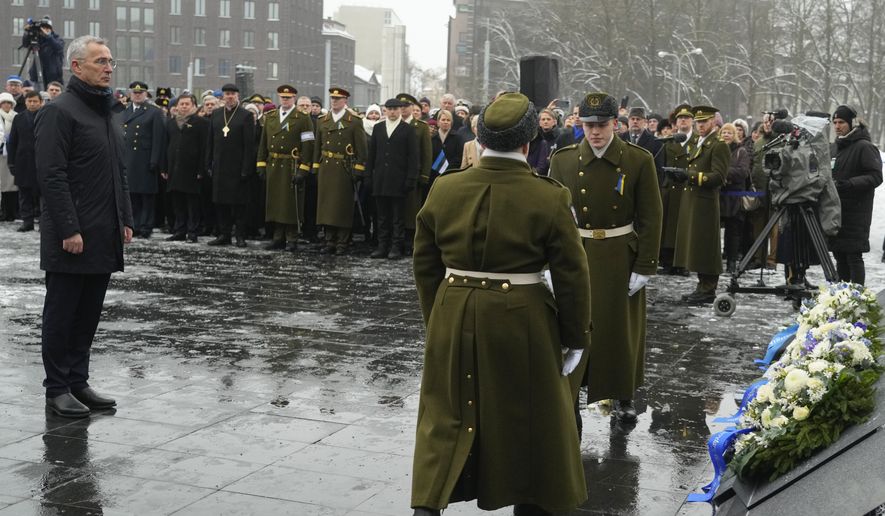NATO Secretary-General Jens Stoltenberg isn’t impressed with China’s recent calls for a political settlement to the Ukraine conflict because of what he said are signs that Beijing may be aligning itself with the Kremlin.
In a Foreign Ministry position paper released Friday — one year after Russian President Vladimir Putin’s invasion of Ukraine — China called for an end to unilateral sanctions against Moscow and a resumption of peace talks. While Beijing seeks to position itself as a neutral party interested only in peace, it has come under pressure from other countries for reportedly considering sending lethal assistance to Moscow.
“China doesn’t have much credibility because they have not been able to condemn the illegal invasion of Ukraine,” Mr. Stoltenberg said Friday in a joint press conference with Kaja Kallas, prime minister of Estonia, and Ursula von der Leyen, president of the European Commission.
China has denied it will help arm weapons-strapped Russia, and Mr. Stoltenberg acknowledged no one has seen a delivery of firepower.
“What we have seen are signs and indications that China may be planning and considering to supply military aid to Russia. China should not do that, because that will be to support an illegal war of aggression,” Mr. Stoltenberg said.
As a permanent member of the United Nations Security Council, China has a “particular responsibility” to protect the U.N. Charter, and supporting Moscow would be an egregious violation, Mr. Stoltenberg said. He noted that Beijing signed an agreement with Moscow days before the invasion that offered a “limitless partnership” between the two countries.
“If we want a peaceful, negotiated solution where Ukraine prevails as a sovereign, independent nation, then we need to support Ukraine’s military now,” Mr. Stoltenberg said. “That’s the only way to create the conditions where President Putin realizes that he will not win on the battlefield.”
• Mike Glenn can be reached at mglenn@washingtontimes.com.




Please read our comment policy before commenting.